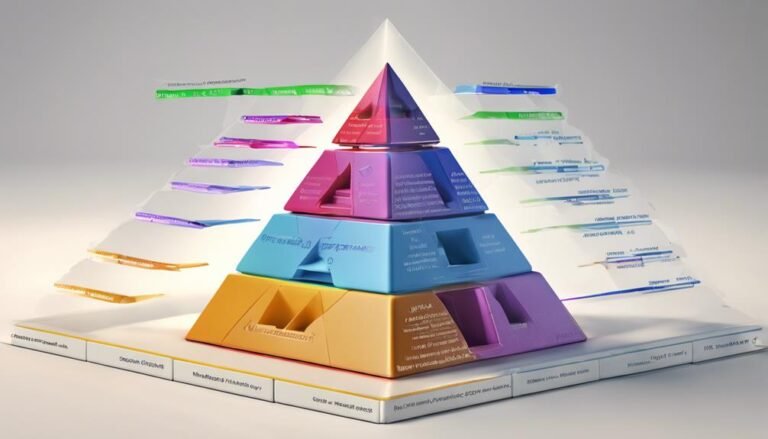The Use of Personality Tests in Employment Settings
In today's competitive job market, the utilization of personality tests in employment settings has become increasingly prevalent. These assessments offer a glimpse into candidates' behavioral traits and potential alignment with organizational culture. However, the effectiveness and ethical implications of such tests remain subjects of debate among experts. By exploring the intricacies of personality assessments, you can gain valuable insights into their impact on hiring decisions and team dynamics.
Key Takeaways
- Personality tests aid in making informed hiring decisions by providing insights into behavioral tendencies and preferences.
- Understanding validity and reliability is crucial in using personality assessments effectively in employment settings.
- Implement strategies to enhance team dynamics and improve collaboration through personality assessments.
- Overcome potential biases by ensuring tests are culturally neutral and diverse evaluators interpret results.
- Regularly review and update personality tests to align with job requirements and organizational needs.
Benefits of Personality Tests
Personality tests in employment settings offer valuable insights into candidates' behavioral tendencies and preferences, aiding employers in making informed hiring decisions. By utilizing these assessments, organizations can better align their hiring decisions with the needs of their teams, ultimately enhancing team building efforts.
Understanding the personalities of potential employees can lead to more effective workforce development strategies and increased employee engagement.
When employers incorporate personality tests into their hiring processes, they gain a deeper understanding of how candidates may fit within their existing teams. This knowledge allows for the selection of individuals who not only possess the necessary skills but also complement the dynamics of the team.
Consequently, hiring decisions become more strategic and targeted towards fostering a cohesive work environment conducive to productivity and collaboration.
Moreover, personality tests play an essential role in workforce development by enabling employers to identify areas where additional training or support may be needed. This proactive approach to employee development can lead to higher levels of engagement, job satisfaction, and overall performance within the organization.
Types of Personality Assessments
When considering types of personality assessments in employment settings, it's important to explore various assessment techniques. Understanding the validity and reliability of these assessments is vital for making informed decisions.
Assessment Techniques
Various types of personality assessments are commonly utilized in employment settings to evaluate candidates' traits and behaviors. These assessments play a vital role in making hiring decisions by providing valuable insights into an individual's personality and potential job fit. Assessment accuracy is a significant factor in ensuring that organizations select candidates who align with the required traits and behaviors for a particular role.
Employers often use a variety of assessment tools to evaluate candidates, such as self-reported questionnaires, situational judgment tests, and personality inventories. Each of these tools offers unique insights into different aspects of an individual's personality, helping employers assess whether a candidate's traits align with the job requirements.
Validity and Reliability
Assessment tools used in employment settings to evaluate candidates' personality traits and behaviors must exhibit both high validity and reliability to guarantee the accuracy of hiring decisions. Validity refers to the extent to which a test measures what it claims to measure, while reliability indicates the consistency of results over time.
When it comes to personality assessments, ensuring that these tests accurately predict job performance is vital for making informed hiring choices.
Ethical concerns arise in using personality assessments, as they shouldn't discriminate against any particular group based on cultural differences. It's essential to make sure that these assessments are fair and don't disadvantage candidates from diverse backgrounds.
Additionally, cultural considerations play a significant role in the validity and reliability of personality assessments. Different cultures may interpret questions or traits differently, affecting the outcomes of these tests.
Validity and Reliability Considerations
Considering the importance of ensuring the accuracy and consistency of personality tests in employment settings, it's essential to thoroughly evaluate their validity and reliability.
Validity refers to the extent to which a test measures what it claims to measure, while reliability focuses on the consistency of the results it produces. In the context of personality tests for hiring purposes, both aspects are critical.
Ethical considerations play a significant role in evaluating the validity and reliability of these tests. Ensuring that the tests aren't biased against any particular group and that the results are used appropriately is essential.
Additionally, practical applications need to be taken into account. This involves looking at how well the test predicts job performance and whether it provides useful insights into an individual's potential fit within a specific role or organization.
Ethical Implications in Hiring
In order to uphold ethical standards in hiring practices, it's essential to ponder the potential implications of utilizing personality tests in employment settings. Legal concerns arise regarding the use of personality tests, as they must comply with anti-discrimination laws. These tests shouldn't lead to discriminatory hiring practices based on race, gender, age, or other protected characteristics. It's important to guarantee that the tests aren't biased and don't unfairly advantage or disadvantage certain groups.
Moreover, privacy rights and consent are significant ethical considerations. Job applicants must be informed about the use of personality tests, the purpose behind them, and how the results will be used. Applicants should also provide explicit consent before undergoing any testing. Respecting the privacy of individuals and safeguarding their personal data is crucial to maintaining ethical integrity in the hiring process.
Enhancing Team Dynamics
To promote cohesion and productivity within a team, it's vital to implement strategies that enhance team dynamics. Collaborative problem-solving is a key aspect of fostering effective teamwork. Encouraging team members to work together to solve challenges not only improves problem-solving skills but also strengthens relationships within the team.
Communication strategies play an essential role in enhancing team dynamics. Open and transparent communication helps to prevent misunderstandings, promotes trust among team members, and guarantees everyone is on the same page regarding project goals and expectations.
Team-building activities can also greatly contribute to enhancing team dynamics. By engaging in activities that require collaboration and teamwork, team members can develop a better understanding of each other's strengths, weaknesses, and working styles. These activities can help build a more cohesive and supportive team environment.
Additionally, creating a culture that values and celebrates diversity can lead to greater creativity and innovation within the team. By embracing different perspectives and ideas, teams can achieve more effective outcomes and foster a positive work environment conducive to growth and success.
Overcoming Potential Biases
In order to guarantee fair and unbiased assessments in employment settings, it's essential to implement measures that overcome potential biases that may impact decision-making processes. Mitigating biases is vital for improving accuracy in personality tests used for employment purposes.
One effective way to address biases is by ensuring that the language and content of the personality tests are culturally neutral and free from stereotypes. This approach helps in creating a level playing field for all candidates, regardless of their background or demographics.
Another strategy to overcome potential biases is by using a diverse set of evaluators to interpret the results of the personality tests. Having a team with varied perspectives can help in identifying and correcting any unintentional biases that may arise during the assessment process. Additionally, providing training to evaluators on recognizing and addressing biases can further enhance the accuracy of the assessments.
Best Practices for Implementation
How can organizations guarantee the successful implementation of personality tests in employment settings to maximize effectiveness and accuracy?
To ensure the best practices for implementing personality tests, organizations should prioritize the development of thorough training programs for those administering the assessments. Training programs should focus on understanding the purpose of the tests, interpreting results accurately, and maintaining confidentiality.
Moreover, it's essential to align the personality tests with the specific job requirements to enhance job fit. Organizations can achieve this by clearly defining the traits and characteristics necessary for success in a particular role and then selecting or developing a personality test that assesses those specific factors.
Regularly reviewing and updating the personality tests to reflect changes in job roles or organizational needs is also vital for maintaining relevance and accuracy. By continuously refining the testing process and incorporating feedback from employees and candidates, organizations can improve the overall effectiveness of using personality tests in employment settings.
Conclusion
To sum up, the utilization of personality tests in employment settings offers a unique opportunity for organizations to gain valuable insights into candidates' behavioral tendencies and enhance team dynamics.
By carefully considering validity, reliability, and ethical implications, organizations can make informed hiring decisions and improve overall organizational performance.
Remember, implementing best practices in personality testing can be a game-changer in talent management strategies.







